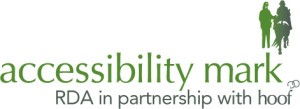Posted: 26th April 2016 | Back to news feed

Equestrianism has helped a huge number of people tackle the challenges they face through living with a disability and offers the opportunity to participate in sport and activities.
Para Equestrian Dressage has been growing as a sport steadily for the last 25 years and ranges from grassroots to Paralympic level.
As a Paralympic discipline the profile of Para Equestrian Dressage was catapulted into the spotlight during London 2012, with Great Britain demonstrating their skills as a leading force in the sport.
Those who compete in this discipline are a huge inspiration. The disabilities faced by riders range in their severity, but they all share common characteristics; their enthusiasm, dedication and love of what they do.
Sophie Wells MBE is a Paralympic Dressage rider and is an outstanding example of what a disabled rider can achieve with a horse. The 25-year-old is a truly spectacular athlete who has already won a clutch of gold and silver medals.
Born with Amniotic Band Syndrome, which has left her with problems with her hands and ankles, Sophie has lost several fingers, has nerve problems in her lower legs and has no feeling in her feet.
As a young child she tried several sports but decided she would like to learn to ride, so went to a riding school at the age of seven. She soon decided to focus on dressage and she has never looked back.
Sophie is a member of the British Equestrian Federation’s World Class Programme and has competed at numerous international competitions.
Sophie’s story demonstrates how taking up this wonderful sport can dramatically change your life and repay the hard work and commitment that goes into it. Simple things like holding the reins proved to be a challenge for Sophie but she persevered and her involvement with horses has certainly changed her life for the better.
Said Sophie: “I started riding horses from an early age, and very quickly became completely hooked. Learning to ride gave me a real focus when growing up, I did compete my pony in all activities including jumping, but eventually turned to pure dressage. From local competitions to eventually being selected for Team GB and representing my country has been a long journey supported by many people.
“I really wouldn't be where I am today without the support of all the associations and the opportunities they offer, and would really recommend that people take that first step and contact their local RDA.
“Horses offer so many things to so many people, of all ages and disabilities. I would urge anyone tempted to give it a go to go for it, do not be put off or held back because you never know where your dreams can take you."
Would you like to be the next Sophie Wells? There are now more opportunities than ever for disabled people, to become involved with horses.
Riding for the Disabled Association (RDA), in partnership with Hoof, the British Equestrian Federation’s (BEF) participation programme launched the Accessibility Mark scheme to encourage those who do not already partake in equestrian activities or would not usually have the opportunity to do so, to experience the many benefits that riding can bring.
Accessibility Mark status is awarded to a riding centre that has been approved by RDA following training and assessment. The close link with the RDA means that they offer continuous support to the establishment to ensure they provide a first class service and an experience that aims to be hugely beneficial.
If you would like to aim high, like Sophie did, or even if you would just like to have a go and see how it helps, get in touch with your local approved centre today.
To find your nearest RDA Group or Accessibility Mark centre visit www.rda.org.

The Equestrian Index newsfeed is compiled from articles submitted by advertising members and expresses the opinions of those members. Watsons Directories Ltd shall not be held liable for any inaccuracies or mis-statements therein.
